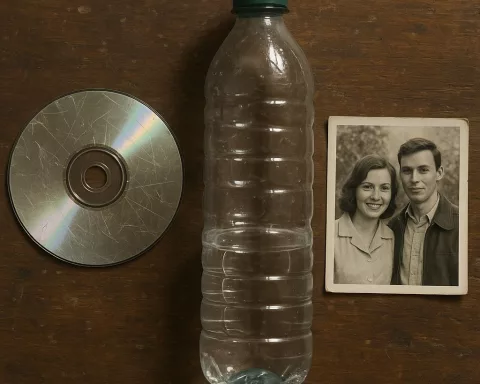The Gauteng Legislature is teaming up with various departments to tackle a backlog of petitions submitted by citizens. They recently held a meeting with the Department of COGTA and the Department of Human Settlements to evaluate progress on municipal service delivery and RDP housing allocations. By expediting the resolution of pending petitions, the Standing Committee on Petitions can allocate its attention and resources to a wider range of pressing concerns and better serve the needs of its constituents. This collaborative effort exemplifies a commitment to addressing citizens’ complaints and cultivating a more responsive and efficient government.
How is the Gauteng Legislature addressing petition backlogs?
The Gauteng Provincial Legislature is collaborating with relevant departments to address the backlog of petitions submitted by citizens. The Department of COGTA has restructured its petitions management function to better incorporate municipal structures with provincial executives, while the Department of Human Settlements is prioritizing RDP housing allocations. The Standing Committee on Petitions aims to allocate its attention and resources to a wider range of pressing concerns by expediting the resolution of pending petitions.
Gauteng Legislature’s Initiative to Address Public Concerns
The Gauteng Provincial Legislature continuously works towards enhancing their ability to tackle public issues as a crucial institution that represents and empowers the people of the region. A significant part of their efforts involves handling and resolving petitions submitted by citizens. Nevertheless, the Standing Committee on Petitions, led by Adv. Ezra Letsoalo, acknowledges that a buildup of unresolved petitions has clogged the system, hindering them from concentrating on other urgent matters.
To deal with the accumulated petitions, the Committee recently held a meeting with the Gauteng Department of Cooperative Governance and Traditional Affairs (COGTA) and the Department of Human Settlements. The objective of this assembly was to evaluate the progress on various petitions given to these departments in July 2023, a majority of which focused on municipal service delivery and RDP housing allocations.
In an effort to expedite the resolution of pending petitions, the Committee instructed the Department of COGTA to enhance the coordination and reporting of municipal service delivery petitions. The Department’s optimistic report indicated that its restructuring of the petitions management function, which better incorporates municipal structures with provincial executives, is set to speed up the resolution of petitions.
Addressing the Backlog: RDP Housing Allocations and Municipal Service Delivery
The Department of Human Settlements received 142 petitions regarding RDP housing allocations, submitted between 1996 and 2022. RDP allocations make up the largest share of the Committee’s work, with 51% of all adopted petitions during the 6th Legislative term being RDP-related. By transferring these petitions to the Department of Human Settlements, the Committee hopes to accelerate the resolution process and offer much-needed relief to residents.
Adv. Letsoalo stated, “The Committee no longer wants to deal with the same complaint on service delivery issues individually. These tend to obscure our focus on more substantive issues that relate to other service delivery issues from different service departments.” By effectively addressing the backlog of petitions, the Committee can allocate its attention and resources to a wider range of pressing concerns.
To maintain transparency and accountability, the Committee anticipates a comprehensive report from the Department of Human Settlements outlining their efforts to individually inform and update all 142 petitioners about their application status. Additionally, the Department must create channels through which petitioners can regularly inquire about their application updates. The petitions will stay open until the Committee is content with the intervention measures implemented to justify their closure.
A Model of Good Governance: Gauteng Legislature’s Collaborative Approach
This joint effort exemplifies a commitment to addressing citizens’ complaints and cultivating a more responsive and efficient government. By refining the petitions management function and involving pertinent departments, the Gauteng Legislature is taking considerable strides towards resolving long-standing issues and improving the quality of life for its constituents.
Through these endeavors, the Gauteng Legislature emphasizes the significance of a well-utilized petitions system as an essential redress mechanism for citizens. By managing their caseload effectively and promptly, they can better serve the needs of the people they represent. This not only fortifies the relationship between the government and the governed but also underscores the value of democracy in an ever-evolving society.
In conclusion, the Gauteng Legislature’s active and collaborative approach to resolving the backlog of petitions serves as an example of excellent governance and efficient public service delivery. Their dedication to addressing citizens’ concerns and enhancing their quality of life is a testament to their devotion to the principles of democracy and the welfare of their constituents.
What is the Standing Committee on Petitions?
The Standing Committee on Petitions is a committee within the Gauteng Provincial Legislature responsible for handling and resolving petitions submitted by citizens.
What is the backlog of petitions in the Gauteng Legislature?
The backlog of petitions in the Gauteng Legislature refers to the buildup of unresolved petitions that have clogged the system, hindering the Committee from concentrating on other urgent matters.
What departments are collaborating with the Gauteng Legislature to address petition backlogs?
The Gauteng Legislature is collaborating with the Department of COGTA and the Department of Human Settlements to address the backlog of petitions submitted by citizens.
What are the departments’ roles in addressing the backlog?
The Department of COGTA has restructured its petitions management function to better incorporate municipal structures with provincial executives, while the Department of Human Settlements is prioritizing RDP housing allocations.
What is RDP housing allocation?
RDP housing allocation is a government program that seeks to provide affordable housing to disadvantaged South Africans.
What percentage of petitions submitted to the Gauteng Legislature are RDP-related?
51% of all adopted petitions during the 6th Legislative term were RDP-related.
What is the Gauteng Legislature’s aim in addressing the backlog of petitions?
The Gauteng Legislature’s aim in addressing the backlog of petitions is to allocate its attention and resources to a wider range of pressing concerns and better serve the needs of its constituents.
What does the Gauteng Legislature’s collaborative approach exemplify?
The Gauteng Legislature’s collaborative approach exemplifies a commitment to addressing citizens’ complaints and cultivating a more responsive and efficient government.








